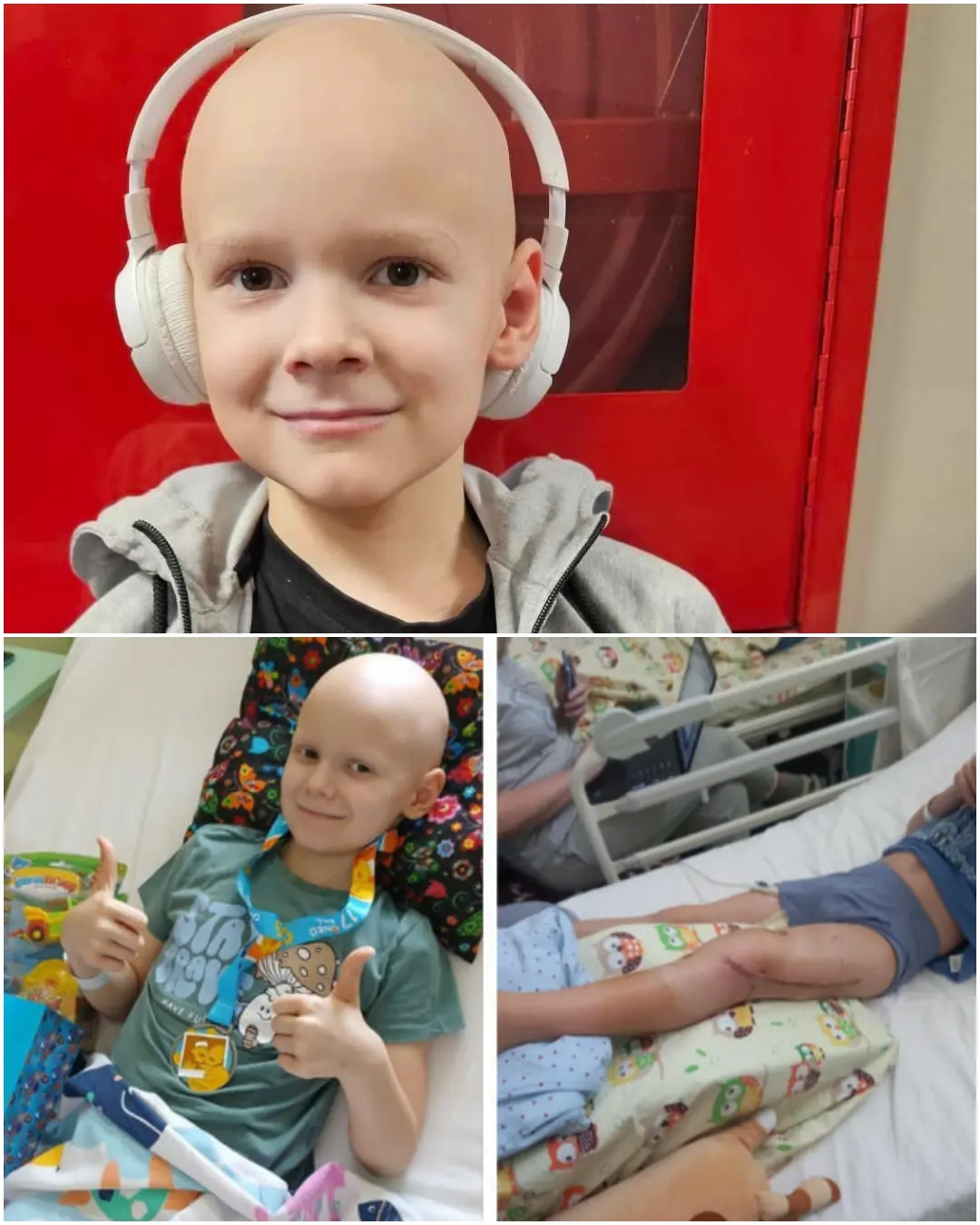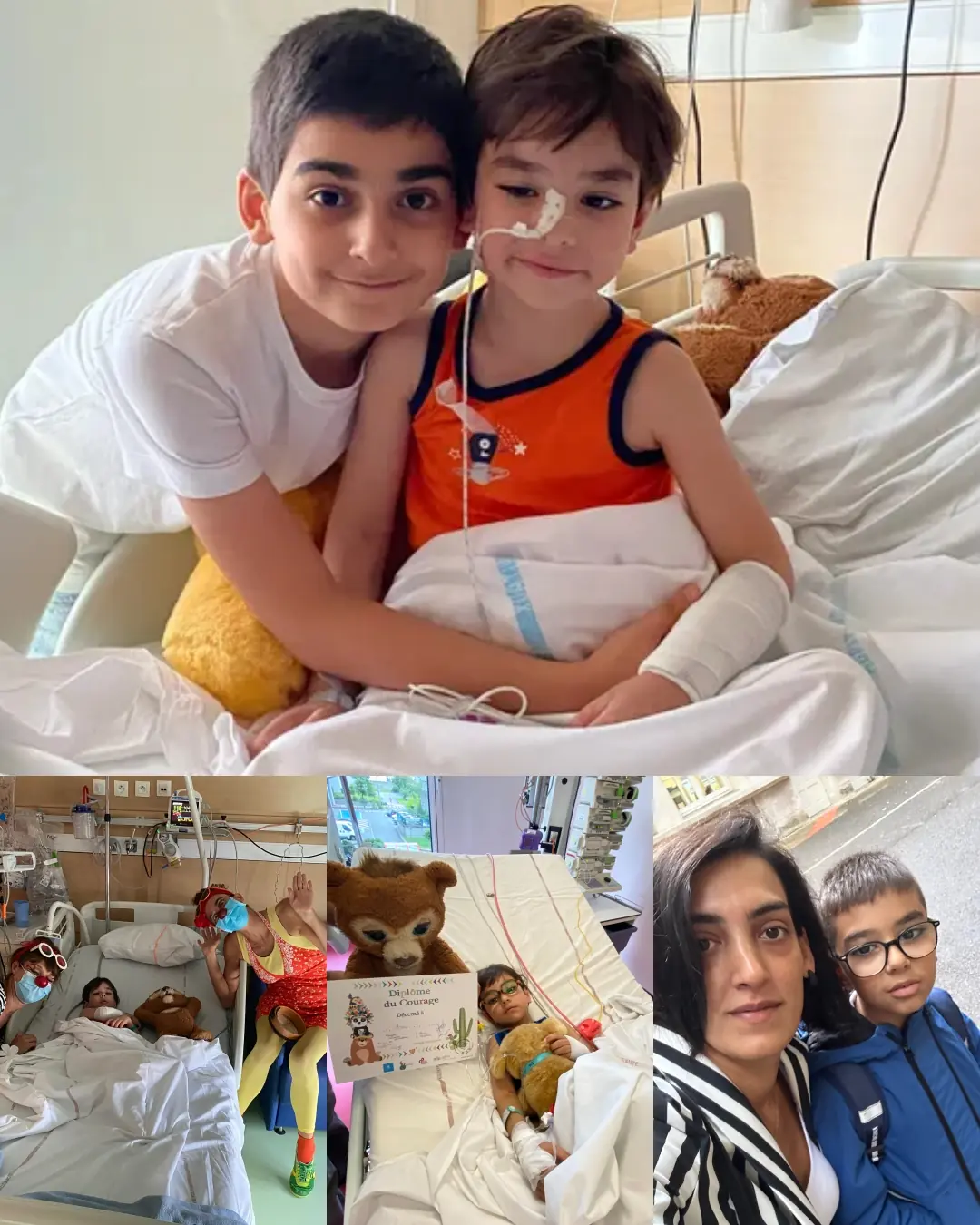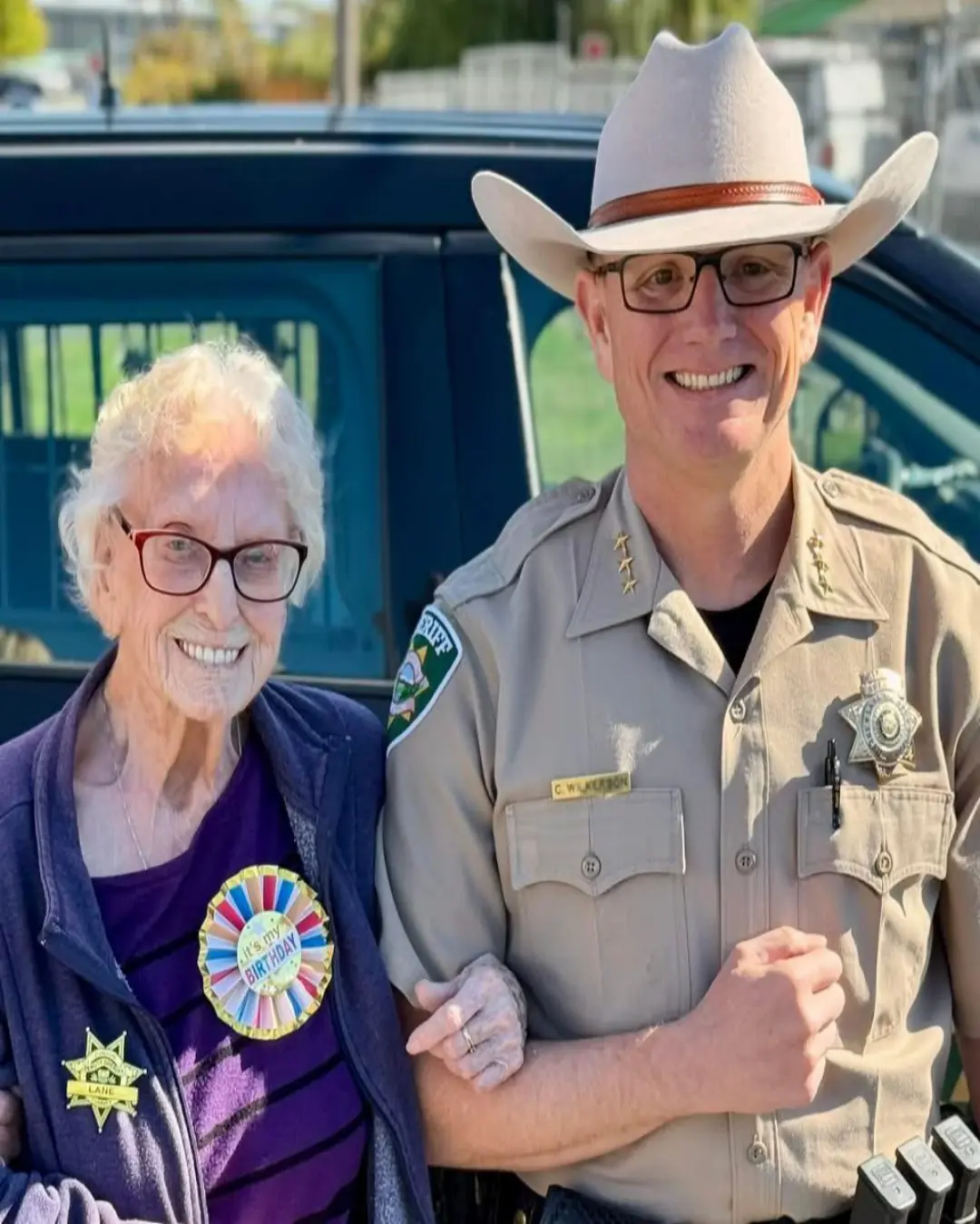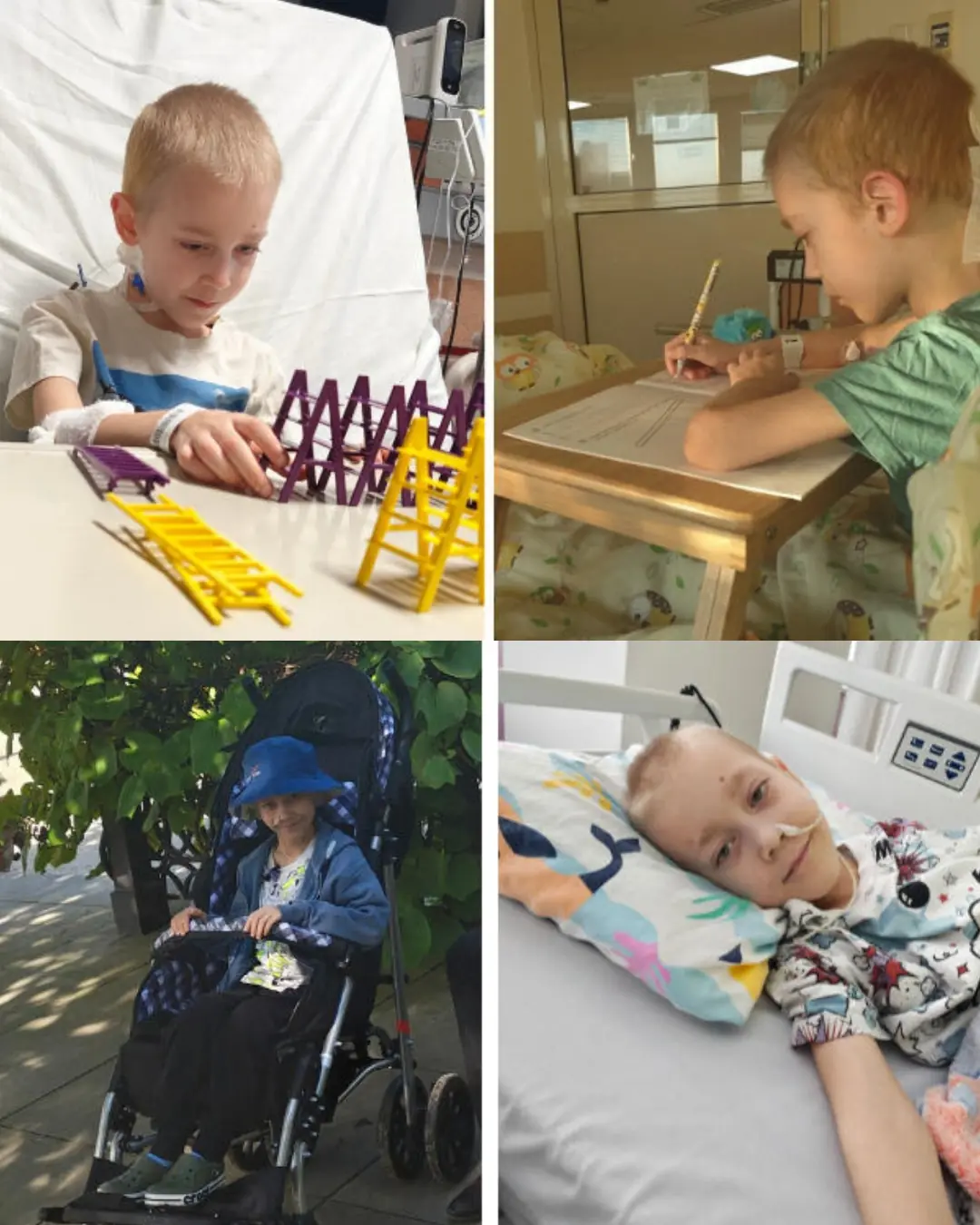
After throwing his wife out, the husband laughed that all she got was the old refrigerator. He had no idea it had a double wall.
The Hour of Condolences and Condemnations
A thick, viscous silence filled the apartment, saturated with the faint, cloying scent of cheap funeral incense and the fading perfume of lilies. Marina sat hunched over on the edge of the sofa, as if an invisible, immense weight pressed down upon her shoulders. The coarse, black dress she wore felt heavy and itchy, a constant physical reminder of the reason for this wordless hush—today, she had buried her grandmother, Eiroyda Anatolyevna, the last true family member she had left in the world.
Opposite her, sunk deep into a wide armchair, her husband Andrey sprawled with lazy, cynical nonchalance. Tomorrow, they were scheduled to file for divorce, and his presence here felt like the height of callousness. He hadn’t offered a single word of genuine sympathy; he simply watched her in silence with poorly concealed impatience, clearly waiting for this drawn-out, emotional performance to finally conclude.
Marina stared at a single spot, at the worn, familiar pattern of the carpet, and felt the last remaining grains of hope for reconciliation slip through her fingers, leaving behind a profound, icy emptiness.
“Well then, accept my heartfelt condolences,” Andrey finally broke the agonizing silence, his voice dripping with caustic, saccharine mockery. “Now you’re a well-to-do girl. An heiress! Your granny must’ve left you untold treasures, huh? Oh, right, I forgot. A massive inheritance—an ancient, stinking ZIL refrigerator. Congratulations on such a sound, impressive investment.”
The words slashed deeper than any knife. In her mind, she slipped back into the endless chain of bitter quarrels. Her grandmother, a woman of the old school with the rare, ringing name of Eiroyda, couldn’t stand her son-in-law. “He’s a wheedler, Marina,” she would warn, her stern eyes flashing with warning. “Hollow as a drum. Watch out, he’ll strip you bare and toss you aside like garbage.”
Andrey only bared his teeth in response and contemptuously called her “the old witch.” How many times had Marina found herself desperately caught between these two fires, trying to make peace, how many nights had she shed tears, naively believing they simply misunderstood each other. Now she understood with chilling clarity: her grandmother had seen everything from the very beginning.
“Speaking of your brilliant future,” Andrey continued, savoring his cruelty like a gourmet meal. He stood up slowly, meticulously smoothing his expensive jacket. “You don’t need to bother coming to work tomorrow. I’ve already fired you. The order was signed this morning. So, dearest, soon even your precious ZIL will seem like an unattainable luxury. You’ll be rooting through dumpsters for food, and you’ll definitely remember me with a kind word, I’m sure.”
This was the absolute end. Not just the end of a destructive marriage, but the complete, violent end of the whole life she had naïvely built around this man. The last faint hope flickering in her soul—that he might come to his senses, that the gravity of the funeral would force him to show a single shred of humanity—died instantly. In its place, slowly and inexorably, a cold, crystal-clear hatred began to form and solidify.
Marina raised empty eyes to meet his but said nothing. Why waste the breath? Every word that mattered had already been spoken. She rose without a sound, walked calmly to the bedroom, and took out the travel bag she had packed in advance—a premonition of this day. She gave no answer to his final sneering questions and mocking snickers. Clenching tightly in her hand the key to another, long-forgotten apartment, she walked out of the door without a single glance back.
The Street and the Stranger
The street met her with a raw, biting evening wind. Marina stopped under the dim, sickly glow of a streetlamp, setting her two heavy, bulging bags down onto the cold asphalt. Before her loomed a forbidding gray nine-story panel building—the house of her childhood and youth, where the apartment of her late parents was.
She hadn’t been here in many years. After their tragic death in a car accident, her grandmother had sold her own one-room flat and moved here to raise her orphaned granddaughter. This apartment held too many painful, suffocating memories, and when she married Andrey, Marina had consciously avoided the place, preferring to meet her grandmother on neutral ground.
Now, these dusty, silent walls were her only refuge. She thought bitterly of her grandmother. Eiroyda Anatolyevna had been everything to her: mother, father, friend, the one truly solid support in her unstable world. And she, Marina, in recent years had visited so rarely, consumed by her all-encompassing, demanding work at her husband’s firm and by futile attempts to smooth the sharp edges of a marriage rapidly coming apart at the seams. A sharp, searing pang of guilt pierced her heart. The tears she had stoically held back all day poured from her eyes. She stood shaking with soundless sobs—small, isolated, and utterly lost in the middle of a vast, indifferent city.
“Ma’am, need some help?” came a thin, slightly hoarse voice directly beside her. Marina started violently and spun around. A boy of about ten stood there in a worn, ill-fitting jacket and badly run-down sneakers. Despite the dirt smeared on his cheeks, his gaze was surprisingly clear, direct, and penetrating. He nodded toward her heavy bags. “Heavy, aren’t they?”
Marina quickly wiped her tears away with her sleeve. The street kid’s directness and entirely businesslike tone were unexpectedly disarming.
“No, I can manage…” she began, but her voice broke again.
The boy studied her face with an unnerving scrutiny.
“Why’re you crying?” he asked, without a trace of childish curiosity—more like a grown-up, irrefutable statement of fact. “Happy people don’t stand in the street with suitcases and cry.”
The phrase, so simple and yet so precisely insightful, made her look at him differently. There was no pity or mockery in his eyes—only a calm, stark understanding of reality.
“My name’s Seryozha,” he introduced himself.
“Marina,” she exhaled, feeling the knot of tension in her chest finally ease. “All right, Seryozha. Help me.”
She nodded at one of the bags. The boy hefted it with a concentrated grunt, and together, two accidental, bruised allies, they stepped into the dark, damp, and cat-smelling stairwell of the old building.
The heavy, metallic door opened with a long, drawn-out creak, ushering them into a cloud of stale air and decades of dust. The apartment met them with silence and profound neglect. The furniture was draped in large, white, shroud-like sheets; through the tightly drawn curtains, only a sliver of street light barely managed to seep in, catching the thick motes of dust dancing in the air. It smelled heavily of old books and something else—elusively, profoundly sad—the palpable smell of an abandoned home. Seryozha put the bag down, looked around with the keen air of a seasoned appraiser, and delivered his verdict:
“Yeah… this’ll definitely take some serious work. A week at least to scrub the place down properly. That’s if there are two of us working full-time.”
Marina managed a faint, genuine smile. His brisk, unwavering practicality brought a crucial note of life into the oppressive atmosphere. She looked at him: small, thin, but with such a serious, grown-up expression. She understood perfectly that after he helped her, he would have to go back to the street—to a cold, dangerous night.
“Listen, Seryozha,” she said decisively. “It’s very late already. Don’t go anywhere. Stay here for the night. It’s too cold outside.”
The boy glanced up at her in surprise. Suspicion flickered in his eyes for a moment, but then, without any further question, he simply nodded once.
The Secret in the ZIL
That evening, after a modest dinner of bread and cheese bought from the corner 24-hour store, they sat quietly in the kitchen. Washed and warm, Seryozha looked almost like a child from a real, functioning home. As they talked, he told his difficult story without self-pity or any theatrical strain. His parents drank heavily, then a fire broke out in their ramshackle barracks. They died, and he survived by a miracle. The neighbors called child services, but he ran away straight from the intake center.
“I don’t want to go to an orphanage,” he stated firmly, staring into his empty mug. “They say there’s only one road from there—to prison. It’s like a ticket to a bad life. Better on the street. At least there, you’re on your own.”
“That’s not true, Seryozha,” Marina objected softly. Her own deep grief receded in the face of his massive misfortune. “No orphanage and no street can stop you from becoming a good person if that’s genuinely what you want. It all depends entirely on you.”
He lifted a thoughtful gaze to her, and in that moment, between the two of them—two lonely, deeply lost souls—a first thin but strong thread of sympathy and absolute trust stretched taut.
Later, Marina made up the old couch in the living room for him, finding clean, if mothball-scented, linens in the wardrobe. Seryozha crawled under the blanket and fell asleep almost at once, for the first time in many months in a real, warm, safe bed. Marina watched his peaceful, still face and felt that perhaps her life wasn’t entirely over after all.
The next day, after the divorce was officially finalized, she returned to the apartment. She was empty, but now completely free. She wandered the apartment aimlessly, and her eyes fell upon Andrey’s recent, snide words about the refrigerator.
The hulking, olive-green, dented unit with the massive ZIL badge stood in the corner of the kitchen, a foreign, ridiculous monster from the past. Marina examined it with new interest.
Seryozha, no less curious, came over too and began inspecting it from all sides, rapping his knuckles sharply against the enamelled sides.
“Whoa, that’s ancient,” he whistled. “We had a newer one even in our barracks. Does it even work?”
“No,” Marina said, sinking wearily onto a chair. “It doesn’t. It’s just a useless memory.”
The next day she and Seryozha armed themselves with rags and buckets and began a top-to-bottom clean. Work was humming along. As they stripped layers of old wallpaper from the walls and scrubbed the ingrained grime from the floors, they talked constantly. To her genuine surprise, Marina felt lighter and more present. The physical labor and Seryozha’s constant, insightful chatter pulled her relentlessly out of her dark, self-pitying thoughts.
In their brief breaks, he kept going back to the refrigerator. He circled it, peered intently inside, tapped and listened. It was clear the old, ridiculous unit gave him no peace.
“Something’s definitely off with it,” he finally declared, beckoning Marina over with urgency. “I’ve got a strange feeling about this thing.”
“Seryozha, it’s just a broken old fridge,” she waved him off.
“No, look!” he insisted. He ran his thin hand along the side panel. “See? This side’s normal—thin metal. But over here”—he moved to the other side—“it’s much thicker. You can feel it. And it sounds kind of hollow. It’s not right somehow.”
Marina came closer, intrigued by his unwavering insistence. She ran her palm along the side and did indeed feel a subtle difference. One side wall was noticeably thicker than the other. They began to examine it carefully, and soon noticed a hair-thin, almost invisible seam along the edge of the inner plastic panel. Prizing it up with the tip of a kitchen knife, Marina was astonished to find the panel came away easily, as if designed to do so. Behind it was a large, concealed cavity.
Inside, packed tight, lay neat, thick bundles of cash. Not rubles—dollars and euros. And next to them, in several small velvet cases, the gems from antique jewelry gleamed dully in the low light: a massive emerald ring, a long strand of perfect pearls, heavy gold earrings set with sparkling diamonds. They stood over this unimaginable hoard, utterly transfixed and afraid to breathe.
“Wow,” they whispered in unison.
Marina sank to the floor, unable to stand. In an instant, everything fell into place. Now she understood: her grandmother’s insistence that the refrigerator go only to her, and those enigmatic final words—“Don’t be in a hurry to toss old things, Marina; there’s more sense in them than in your fashion-plate dandy.”
Eiroyda Anatolyevna—who had lived through dispossession, war, and multiple financial collapses—did not trust banks, contracts, or men like Andrey. She had carefully hidden everything she had in what seemed, to her, the most reliable way possible. It wasn’t just an inheritance—it was a carefully thought-out rescue plan. Grandmother knew Andrey would leave Marina utterly penniless after the divorce, and she made sure her granddaughter had the concrete means to start over.
Tears rushed to her eyes again, but this time they were tears of profound gratitude and overwhelming relief. She turned to Seryozha, who stood transfixed, staring at the incredible treasure. She pulled his thin shoulders into a tight, fierce embrace.
“Seryozha…” she whispered, struggling to get the words out through her tears. “Everything’s going to be all right now. Do you hear me? Now we have everything we need to start a new life. I can adopt you. We’ll buy a good apartment, and you’ll go to the very best school. You’ll have everything.”
The boy slowly turned his head toward her. His face was solemn, and in his eyes stood such bottomless, desperate hope that Marina’s heart clenched again.
“Really?” he asked quietly. “You… you really want to do that? To be my mom?”
“Really,” she answered firmly. “I want it very much.”
The Sweetness of Revenge
Years passed. They flew by like a single, eventful moment. Marina officially adopted Sergey. With part of the hidden money, they bought a spacious, light-filled apartment in a respected neighborhood.
Sergey turned out to be an unusually capable and incredibly diligent student. He absorbed knowledge greedily, made up several grades externally, and easily entered a prestigious economics university on a full scholarship.
Marina didn’t sit idle either: she got a second professional degree and opened a small but highly successful consulting agency, leveraging her years of business experience.
Nearly ten years went by. A tall, elegant young man in a perfectly cut suit adjusted his tie in front of the mirror. It was Sergey. Today was his commencement. He was graduating with honors as the top student in his entire cohort.
“Mom, how do I look?” he asked, turning to Marina.
“As always, irresistible,” she smiled, looking at him with immense love and pride. “Just don’t let it go to your head now.”
“I’m not bragging, I’m stating a verified fact,” he winked playfully. “By the way, Lev Igorevich called again. Why did you refuse to have dinner with him—again? He’s a truly decent man, and it’s obvious he likes you.”
Lev Igorevich was their neighbor—an intelligent professor who had been courting Marina shyly for several months.
“I’ve no time for dinners,” she waved him off. “I’ve got the most important event today—my son is getting his diploma. Let’s go, or we’ll be late.”
The university’s auditorium was packed to the rafters. In the front rows sat not only parents and professors but also the “buyers”—representatives of major banks and corporations who had come to scout the best young talent. Marina sat in the fifth row, swelling with pride.
Suddenly, her gaze landed on a chillingly familiar face among the “headhunters” up front. It was Andrey. He’d aged, grown heavier, but the smug, arrogant smirk was exactly the same. Marina’s heart paused for an instant, then began to beat evenly again. There was no fear. Only a cool, detached curiosity.
One of the prominent employers was invited to give the welcoming address. Andrey strutted onto the stage. He now owned a large, thriving financial company. He spoke at great length and pompously, praising his firm and promising the graduates the moon and a meteoric career.
“We’re looking for the best of the best!” he declaimed, his voice booming. “And we’re ready to give them everything they need to realize their ambitious goals. The doors of ‘Andreev & Partners’ are wide open to you!”
At last, the student response was announced. The top graduate—Sergey Marinin—was invited to the podium. He stepped up, tall and completely self-possessed, sweeping the immense hall with a calm, intelligent look. A sudden, expectant silence settled over the room.
“Dear professors, dear friends, esteemed guests,” he began evenly. “Today is a momentous day for all of us. We stand on the threshold of a new life. And I would like to tell you a short story. A story of how I came to be here. Long ago, I was a homeless boy living on the street.”
A ripple of genuine surprise ran through the large hall. Marina held her breath, gripping the seat. She had no idea what he was about to say.
Sergey went on, his voice taking on a steely, undeniable firmness. He told how a woman had found him on the street—dirty, hungry, and terrified. A woman whom her own husband had just cruelly thrown out of their home, leaving her without money or work. He did not mention any names, but his gaze was locked on a single spot—on Andrey’s face, which was slowly, terrifyingly blanching white.
“That man told her she’d end up begging around dumpsters,” Sergey articulated each word precisely. “And in a sense, he was technically right. She found me in the ‘dump’ of this world. And today, from this high podium, I want to formally thank him.” Sergey paused dramatically, looking straight into the eyes of his mother’s former husband. “Thank you, Mr. Andreev, for your cruelty. Thank you for throwing your wife out onto the street. If not for your absolute lack of humanity, my mother and I would never have met. And I would never have become the man I am today.”
The effect was like a bomb going off. The hall froze in tomb-like silence, and then began to buzz like a disturbed hive. All eyes, from the professors to the recruiters, were on Andrey, who was flushed purple with consuming shame and impotent rage.
“And that is why,” Sergey concluded, his voice ringing with conviction, “I want to state publicly: I will never, under any circumstances, work for the company of a man with such despicable moral principles. And I would strongly advise my brilliant classmates to think three times before tying their future fate to such a leader. Thank you.”
He left the stage to thunderous, wave-after-wave applause—hesitant at first, then swelling into an ovation. Andrey’s carefully manicured reputation, built entirely on money and gloss, crumbled to dust in five minutes flat. Sergey walked over to Marina, hugged her fiercely—embarrassed, proud, and quietly crying with pure happiness—and together, they headed for the exit without a single look back.
“Mom,” he said in the coat check line, handing her her coat. “Call Lev Igorevich.”
Marina looked at her grown son—at his intelligent, loving eyes—and for the first time in many years felt absolutely, unequivocally happy and secure. She took out her phone and smiled genuinely.
“All right. I’ll say yes to dinner.”
News in the same category


Fighting for Liwia: A Little Girl’s Battle Against the Deadliest Childhood Cancer

Through Fire and Fear: A Mother’s Night of Survival With Her Son

The Underdogs of the North: How Twelve Tiny Chihuahuas Conquered the Snow

Help My Son Regain His Independence After Guillain-Barré Syndrome

Fighting for Every Beat: Eden Riddle’s Journey

Violet Turns 101: Celebrating a Century with a Squad Car Ride

Brave Bowen: A Young Fighter Facing Cancer with Courage and Joy

Marysia: A Brave Little Girl Fighting for a Seizure-Free Childhood

Adaś: A Brave Young Fighter Facing a Rare and Inoperable Tumor

My MIL Demanded I Give Back My Engagement Ring Because It 'Belonged to Her Side of the Family'

MY GRANDSON'S PAPER AIRPLANE REVEALED A DARK FAMILY SECRET THAT SH00K EVERYTHING

I Sent Wedding Invitations Featuring a Picture of My Fiancé and Me to My Three Close Friends – and Suddenly, They All Backed Out

When My Mother-in-Law Turned Our Son's Room Into Her Own – The Lesson She Won't Forget

He invited me to his wedding to humiliate me. He didn’t know it would become my best day.

How I Exp0sed My Husband’s Li es: A Cheating Anniversary He'll Never Forget

“So you’re going to support your sister and live at my expense? And you’ll also demand reports on every single thing I spend? Haven’t you gotten a bit too brazen, my dear? You won’t see another kopeck of my money!”

She got pregnant early—at sixteen. It came to light by accident: during a routine school medical exam, the girl flatly refused to go in to the gynecologist, and the teacher informed her parents.

— You yelled at my son again for making noise? He’s MY child and this is MY apartment! Pack your things — your “discipline” ends here!
News Post

Taro Root: The Ancient Superfood Transforming Health and Sustainability

One Step at a Time — Helping Dmytro Walk Again After Cancer

Fighting for Liwia: A Little Girl’s Battle Against the Deadliest Childhood Cancer

Through Fire and Fear: A Mother’s Night of Survival With Her Son

The Underdogs of the North: How Twelve Tiny Chihuahuas Conquered the Snow

Help My Son Regain His Independence After Guillain-Barré Syndrome

Fighting for Every Beat: Eden Riddle’s Journey

Violet Turns 101: Celebrating a Century with a Squad Car Ride

Brave Bowen: A Young Fighter Facing Cancer with Courage and Joy

Marysia: A Brave Little Girl Fighting for a Seizure-Free Childhood

Adaś: A Brave Young Fighter Facing a Rare and Inoperable Tumor

My MIL Demanded I Give Back My Engagement Ring Because It 'Belonged to Her Side of the Family'

MY GRANDSON'S PAPER AIRPLANE REVEALED A DARK FAMILY SECRET THAT SH00K EVERYTHING

I Sent Wedding Invitations Featuring a Picture of My Fiancé and Me to My Three Close Friends – and Suddenly, They All Backed Out

Man accidentally purchases Tesla that's banned from all supercharger stations

Scientists are warning that over 100 million buildings could end up underwater as sea levels keep rising

When My Mother-in-Law Turned Our Son's Room Into Her Own – The Lesson She Won't Forget

He invited me to his wedding to humiliate me. He didn’t know it would become my best day.
